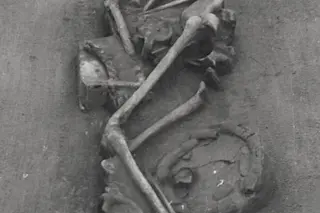An abstract mathematical idealization may hold the answer to how societies can scale good solutions into behavioral change, according to a new cross-disciplinary study involving many fields of science.
The study led by a University of Vermont researcher was originally designed to figure out what kinds of behavioral shifts are needed for societies to adopt policies that would help confront climate change and pandemic infections. The resulting model suggests that social change may depend on the relationship between policies and beneficial behaviors.
Laurent Hebert-Dufresne, an associate professor of computer science at the University of Vermont's Complex Systems Center, was modeling the COVID pandemic, working on the mathematics of how to forecast disease spread and interventions against such events when he teamed up with other scientists. Some of them study cultural evolution and social change, while others are ecologists and researchers who study food system adaptations to climate change. The team ...














